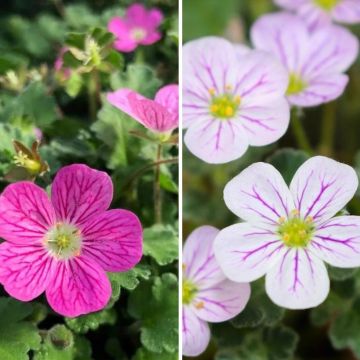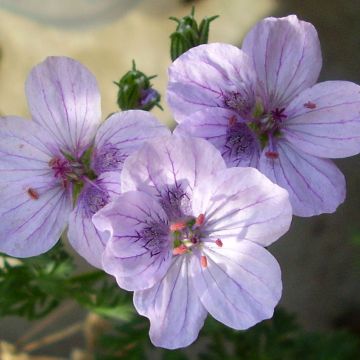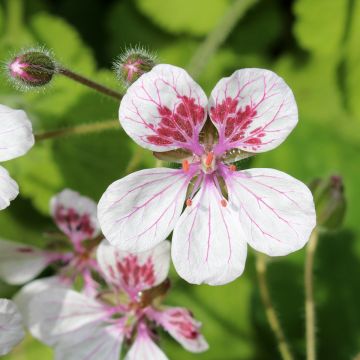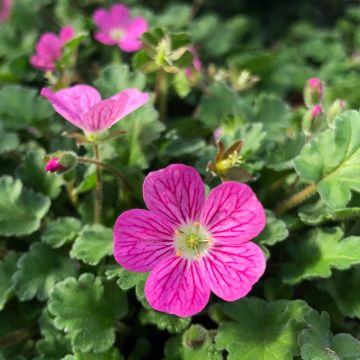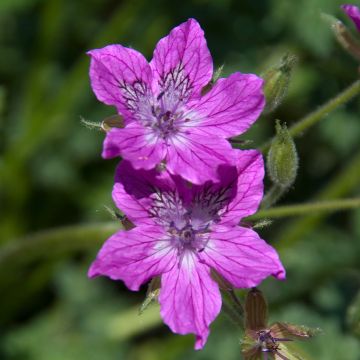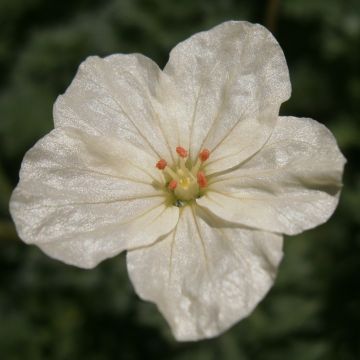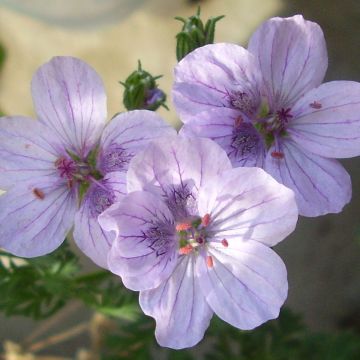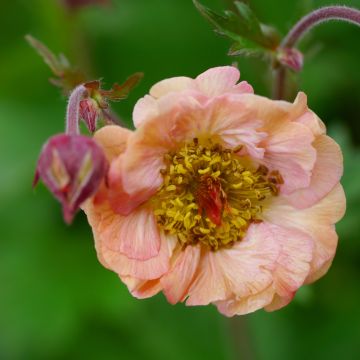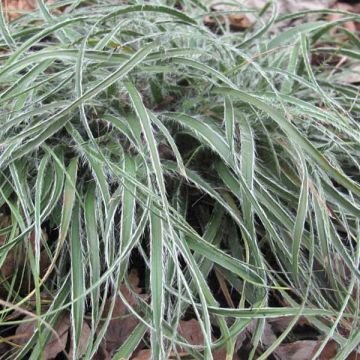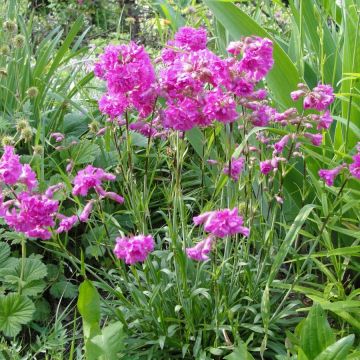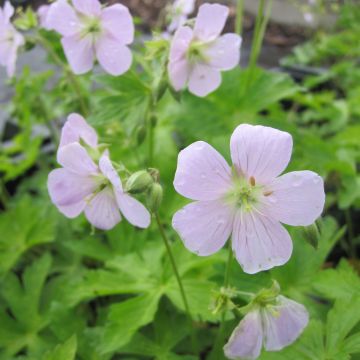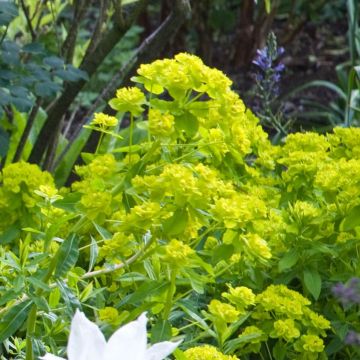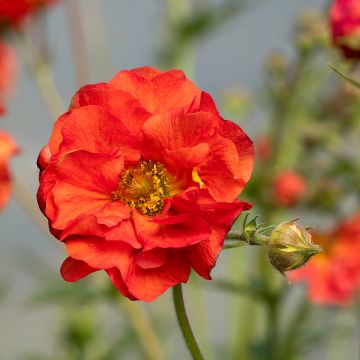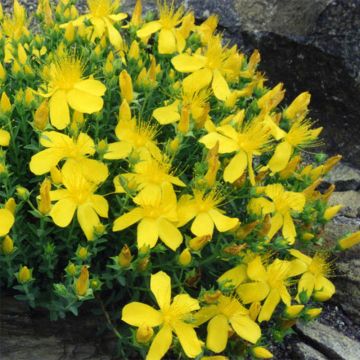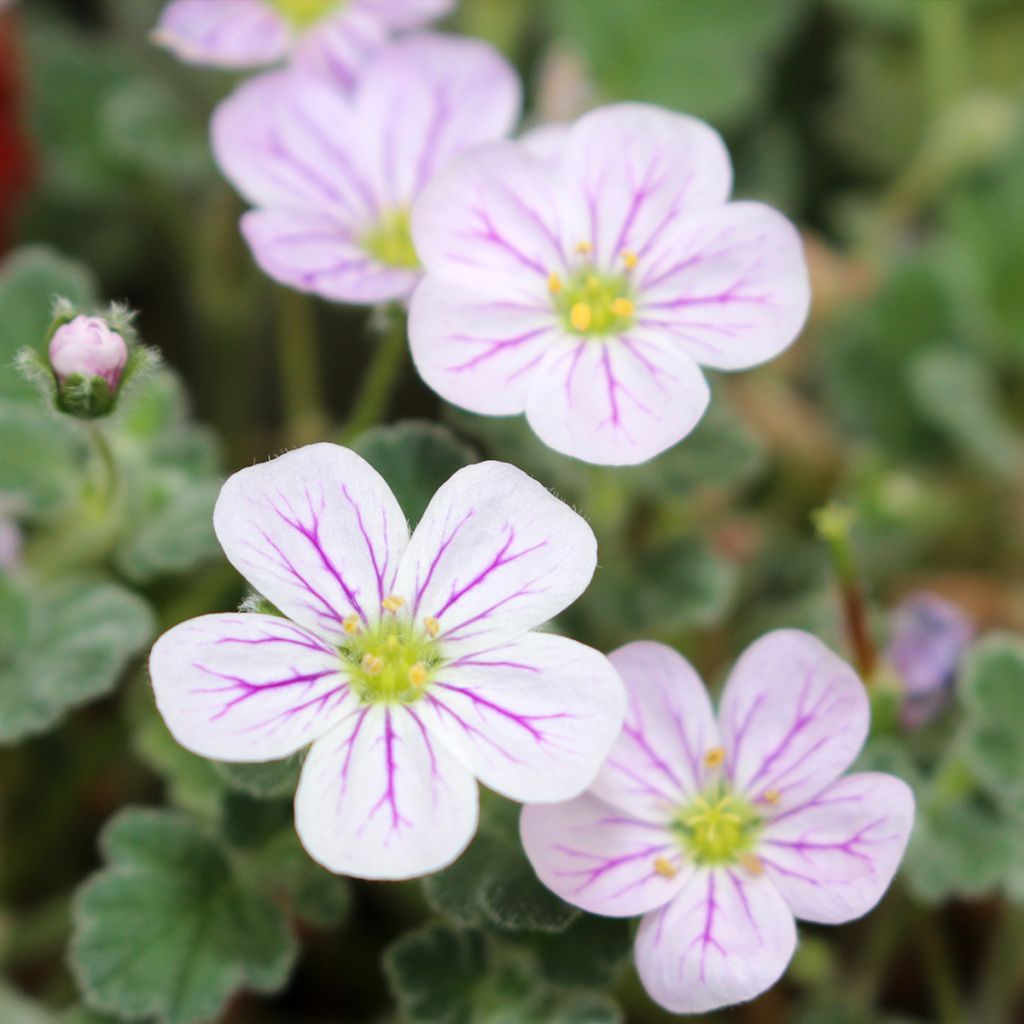

Erodium variabile Album - Bec de héron
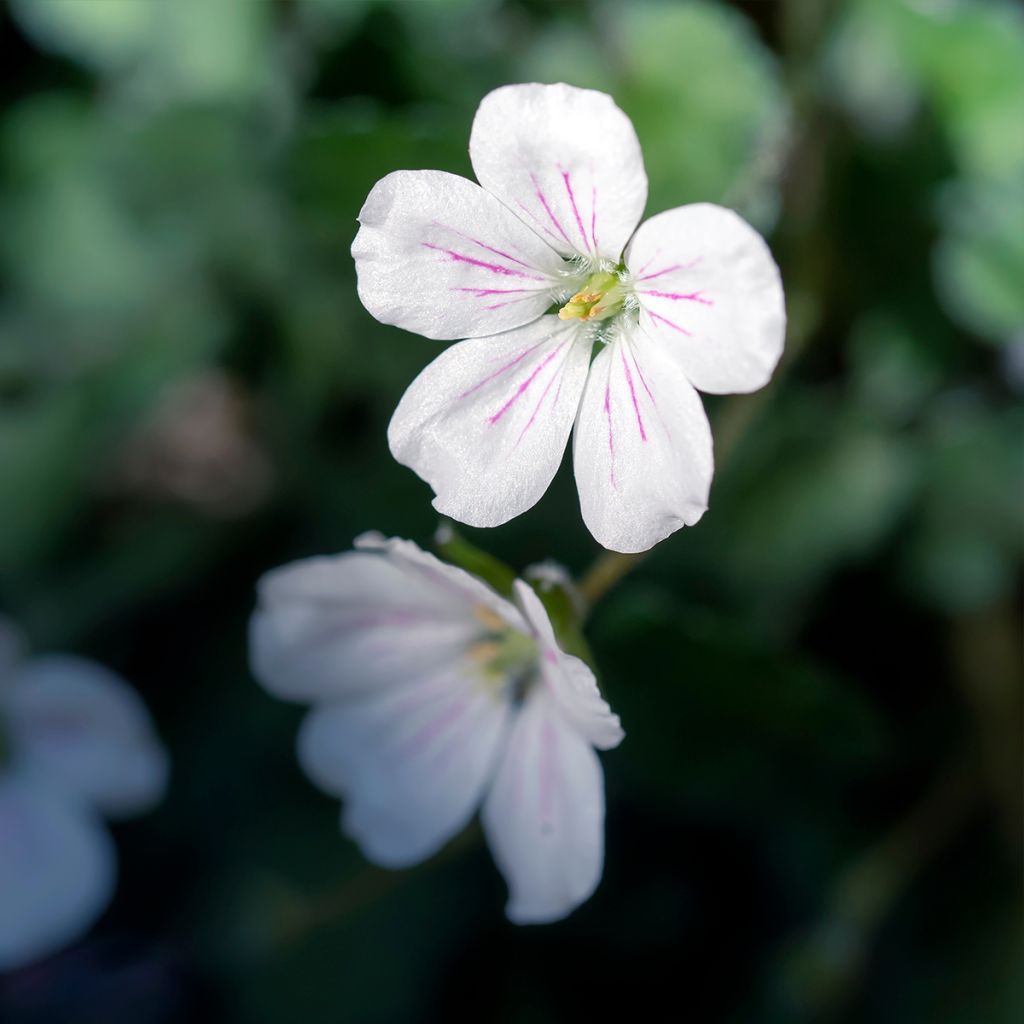

Erodium variabile Album - Bec de héron
Erodium variabile Album - Storksbill
Erodium x variabile Album
Storksbill
They seem to be recovering well
ida, 11/12/2025
Special offer!
Receive a €20 voucher for any order over €90 (excluding delivery costs, credit notes, and plastic-free options)!
1- Add your favorite plants to your cart.
2- Once you have reached €90, confirm your order (you can even choose the delivery date!).
3- As soon as your order is shipped, you will receive an email containing your voucher code, valid for 3 months (90 days).
Your voucher is unique and can only be used once, for any order with a minimum value of €20, excluding delivery costs.
Can be combined with other current offers, non-divisible and non-refundable.
Home or relay delivery (depending on size and destination)
Schedule delivery date,
and select date in basket
This plant carries a 12 months recovery warranty
More information
We guarantee the quality of our plants for a full growing cycle, and will replace at our expense any plant that fails to recover under normal climatic and planting conditions.
Would this plant suit my garden?
Set up your Plantfit profile →
Description
Erodium x variabile 'Album' is a beautiful perennial for rockeries or alpine gardens that flowers enthusiastically for weeks and thrives in poor, rocky, and dry soils in summer. This 'Album' variety bears delicately veined white flowers on a small cushion of green leaves. Similar to the perennial Geranium sanguineum, this variety, sometimes called Storksbill, provides the same benefits to gardeners, both in the garden and in pots.
Erodium x variabile Album belongs to the family Geraniaceae. There are around sixty species of Erodium, mainly originating from Mediterranean regions and western Asia. These hardy little plants grow in limestone mountains, on sunny, warm, and dry rocky slopes. The name Erodium comes from the Greek "erodios," which translates to heron, because the shape of the Erodium fruit resembles a heron or stork's beak. Erodium × variabile seems to be the result of hybridisation between the two species Erodium corsicum and E. reichardii. The 'Album' variety with almost white flowers is a small perennial, with a compact and spreading habit that forms a dense tuft measuring 12-15 cm (5-6in) in height and 30-40 cm (12-16in) in width. Its small leaves sometimes persist partially in winter, depending on the climate, but are mostly deciduous. They are rounded and lobed, a bright green colour that becomes more grey in summer. The flowering period is long, extending from May-June to September. The solitary flowers, with 5 irregular petals, are white veined with purple and form a 1 cm (0.5in) diameter cup.
Easy to grow, this hardy perennial, to -20°C, thrives in sun-exposed areas, gravel beds, rocky slopes, rockeries, the tops of walls, crevices between stones, and sunny borders. It withstands both drought and cold, but is sensitive to winter waterlogging. Pair Erodium with sedums, Delosperma, teucriums, or oreganos, for example. Cultivation in pots is entirely possible, using a mix of equal parts potting compost, garden soil, and gravel.
Report an error about the product description
Erodium variabile Album - Storksbill in pictures
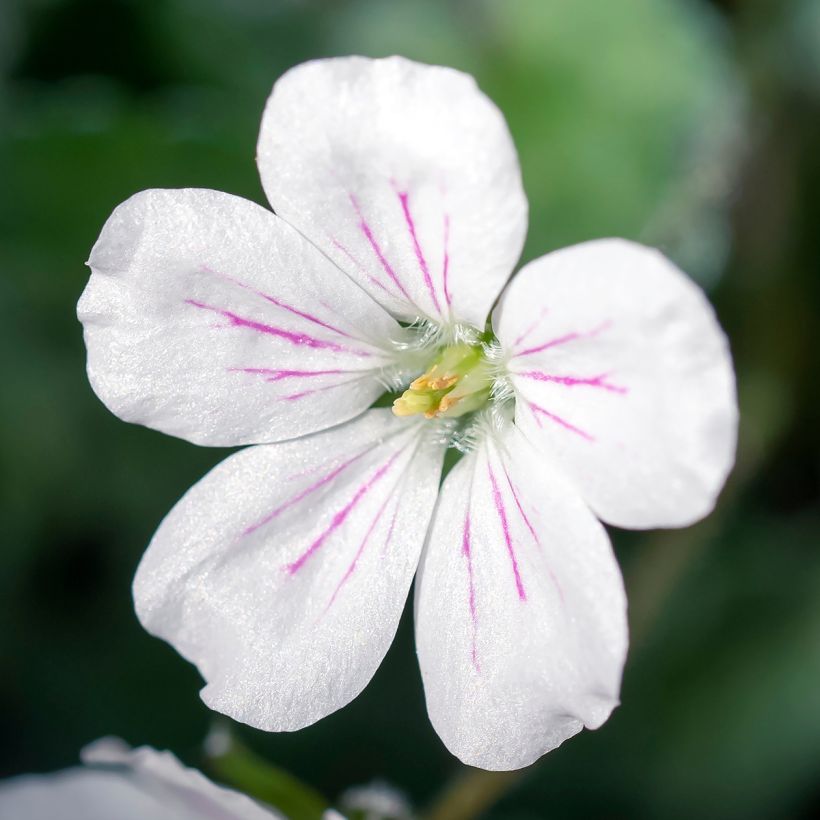

Flowering
Foliage
Plant habit
Botanical data
Erodium
x variabile
Album
Geraniaceae
Storksbill
Cultivar or hybrid
Other Erodium - Stork's-Bills
View all →Planting and care
Erodium variabile 'Album' should be planted in spring in well-drained and sunny soil. It prefers neutral to alkaline, rocky, well-drained terrain. It is not susceptible to any diseases or parasites. It is a hardy and drought tolerant young plant that only fears heavy soils (clay and compact soil) and dislikes waterlogged soil in winter. Almost maintenance-free. Clear the clumps untidy leaves, if necessary, at the end of winter.
Planting period
Intended location
Care
-
, onOrder confirmed
Reply from on Promesse de fleurs
Similar products
Haven't found what you were looking for?
Hardiness is the lowest winter temperature a plant can endure without suffering serious damage or even dying. However, hardiness is affected by location (a sheltered area, such as a patio), protection (winter cover) and soil type (hardiness is improved by well-drained soil).

Photo Sharing Terms & Conditions
In order to encourage gardeners to interact and share their experiences, Promesse de fleurs offers various media enabling content to be uploaded onto its Site - in particular via the ‘Photo sharing’ module.
The User agrees to refrain from:
- Posting any content that is illegal, prejudicial, insulting, racist, inciteful to hatred, revisionist, contrary to public decency, that infringes on privacy or on the privacy rights of third parties, in particular the publicity rights of persons and goods, intellectual property rights, or the right to privacy.
- Submitting content on behalf of a third party;
- Impersonate the identity of a third party and/or publish any personal information about a third party;
In general, the User undertakes to refrain from any unethical behaviour.
All Content (in particular text, comments, files, images, photos, videos, creative works, etc.), which may be subject to property or intellectual property rights, image or other private rights, shall remain the property of the User, subject to the limited rights granted by the terms of the licence granted by Promesse de fleurs as stated below. Users are at liberty to publish or not to publish such Content on the Site, notably via the ‘Photo Sharing’ facility, and accept that this Content shall be made public and freely accessible, notably on the Internet.
Users further acknowledge, undertake to have ,and guarantee that they hold all necessary rights and permissions to publish such material on the Site, in particular with regard to the legislation in force pertaining to any privacy, property, intellectual property, image, or contractual rights, or rights of any other nature. By publishing such Content on the Site, Users acknowledge accepting full liability as publishers of the Content within the meaning of the law, and grant Promesse de fleurs, free of charge, an inclusive, worldwide licence for the said Content for the entire duration of its publication, including all reproduction, representation, up/downloading, displaying, performing, transmission, and storage rights.
Users also grant permission for their name to be linked to the Content and accept that this link may not always be made available.
By engaging in posting material, Users consent to their Content becoming automatically accessible on the Internet, in particular on other sites and/or blogs and/or web pages of the Promesse de fleurs site, including in particular social pages and the Promesse de fleurs catalogue.
Users may secure the removal of entrusted content free of charge by issuing a simple request via our contact form.
The flowering period indicated on our website applies to countries and regions located in USDA zone 8 (France, the United Kingdom, Ireland, the Netherlands, etc.)
It will vary according to where you live:
- In zones 9 to 10 (Italy, Spain, Greece, etc.), flowering will occur about 2 to 4 weeks earlier.
- In zones 6 to 7 (Germany, Poland, Slovenia, and lower mountainous regions), flowering will be delayed by 2 to 3 weeks.
- In zone 5 (Central Europe, Scandinavia), blooming will be delayed by 3 to 5 weeks.
In temperate climates, pruning of spring-flowering shrubs (forsythia, spireas, etc.) should be done just after flowering.
Pruning of summer-flowering shrubs (Indian Lilac, Perovskia, etc.) can be done in winter or spring.
In cold regions as well as with frost-sensitive plants, avoid pruning too early when severe frosts may still occur.
The planting period indicated on our website applies to countries and regions located in USDA zone 8 (France, United Kingdom, Ireland, Netherlands).
It will vary according to where you live:
- In Mediterranean zones (Marseille, Madrid, Milan, etc.), autumn and winter are the best planting periods.
- In continental zones (Strasbourg, Munich, Vienna, etc.), delay planting by 2 to 3 weeks in spring and bring it forward by 2 to 4 weeks in autumn.
- In mountainous regions (the Alps, Pyrenees, Carpathians, etc.), it is best to plant in late spring (May-June) or late summer (August-September).
The harvesting period indicated on our website applies to countries and regions in USDA zone 8 (France, England, Ireland, the Netherlands).
In colder areas (Scandinavia, Poland, Austria...) fruit and vegetable harvests are likely to be delayed by 3-4 weeks.
In warmer areas (Italy, Spain, Greece, etc.), harvesting will probably take place earlier, depending on weather conditions.
The sowing periods indicated on our website apply to countries and regions within USDA Zone 8 (France, UK, Ireland, Netherlands).
In colder areas (Scandinavia, Poland, Austria...), delay any outdoor sowing by 3-4 weeks, or sow under glass.
In warmer climes (Italy, Spain, Greece, etc.), bring outdoor sowing forward by a few weeks.






























